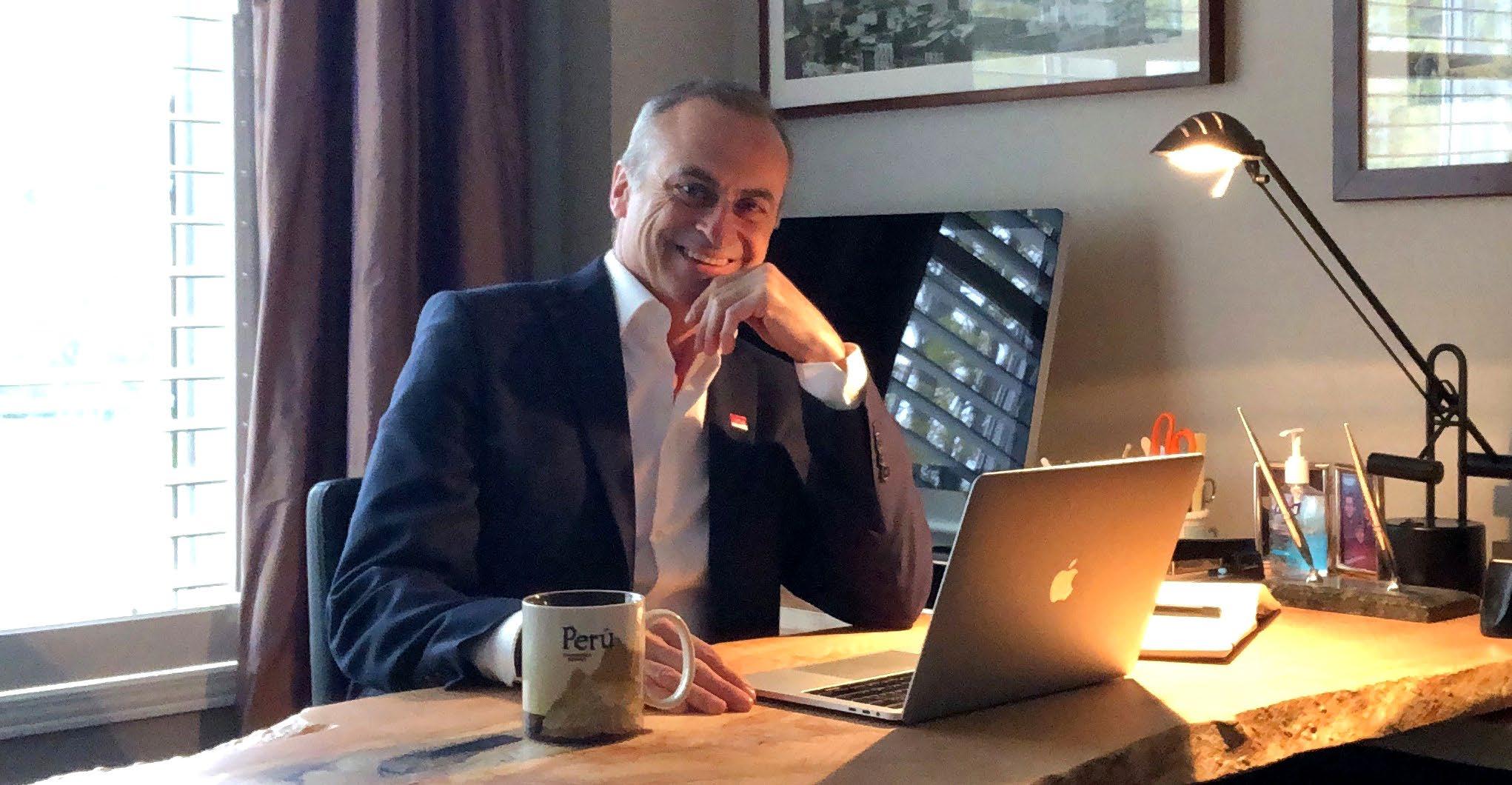Associate Professor of Marketing Eric Dolansky received the 2020 Goodman Faculty Teaching Excellence Award, in part, for his use of casework in the classroom.
W
hen Eric Dolansky noticed that a board game and collectibles store where he shopped had lower prices than elsewhere, he recognized an opportunity for the business and his students. The Associate Professor of Marketing sat down with the shop owners. They were at a crossroads in their retail endeavour, trying to decide how to grow and better compete with similar retailers. Should they try online sales, they wondered. Dolansky teased all of this out of them in a one-on-one interview, then wrote a business case about the decisions that might help the operation expand at a sustainable pace. In the end, the case he wrote steered the store owners to establish an online retail presence, much like many of their competitors had already done. The case was also published and Dolansky went on to win an award from the North American Case Research Association (NACRA) for his work. But Dolansky, who has since been named NACRA Co-President, didn’t write the case for the business owners alone. He did it as much for a teaching tool in his marketing classes at Goodman where he uses case research to inspire students to apply what they’re learning to real-world scenarios. “The real benefit is less for the business and more for the students,” Dolansky said. “Using cases is much more in line with what students will do when they graduate. They’ll take information and make decisions.” Case research often fills voids in the textbooks professors use to complement their lectures, he added. Textbooks are great at defining theories and providing an example or two, but they don’t often encourage the application of the concepts written within them. Using case research, based
CASE-BASED LEARNING IS A TEACHING STAPLE FOR MARKETING PROF By Tiffany Mayer
on issues and decisions real businesses face at a point in time, is more experiential, and encourages students to voice their ideas and work toward solutions. “It’s similar to a real business. If you’re going to graduate and work in business, you’re not going to be able to sit quietly and say nothing. You’re not going to have success if you don’t prepare or participate,” Dolansky said. “It’s up to students to bring convincing arguments and speak in favour of their point of view.” Using case research in the classroom isn’t a new concept. It was the teaching tool of choice among Dolansky’s professors when he did his MBA at Ivey Business School at Western University. These days, Dolansky researches and writes two to three cases a year. He also prepares teaching notes, including learning objectives and questions to spark student conversation, so others can use his work in their own classrooms. “It’s rewarding when I find out a case I wrote five years ago has been seen by 4,000 students across North America,” he said. Dolansky’s passion for creating and using relevant classroom material was recognized this the spring when he received the 2020 Goodman Faculty Teaching Excellence Award. He sees the honour as an endorsement of his enterprising efforts to nurture the next generation of marketing leaders. “I really love case teaching. I love the interaction it provides me with the students in the classroom,” he said. “Because a big part of what I do in the classroom is case teaching, I see this award as a recognition of the value of my teaching approach. I have found over my career that students respond very positively to case learning, and this award validates that in large part.”
SUMMER 2020
23









